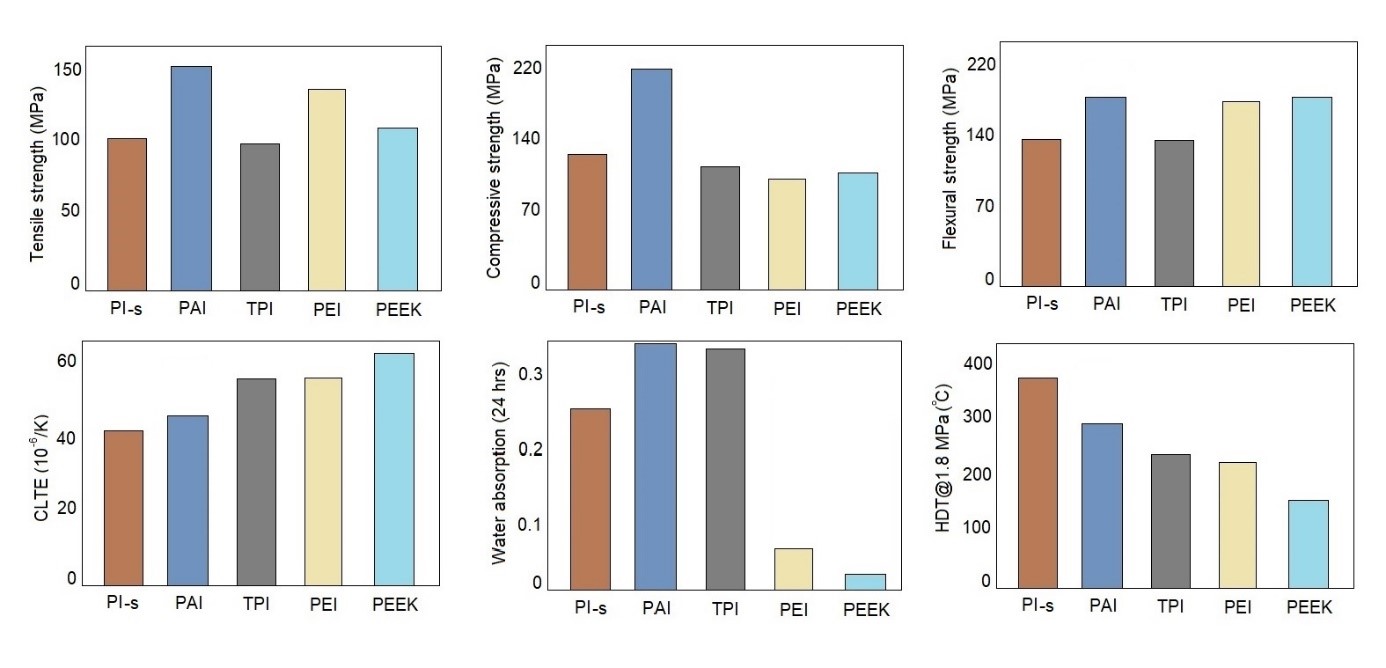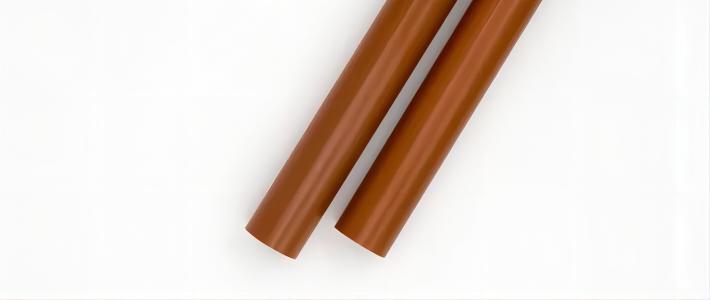
Column navigation
Polywel PI
Polyimide (PI) is a high temperature polymer that can be aromatic, semi-aromatic, or linear according to the composition of the chains. Aromatic molecular structure is the most used PI because of their thermostability. Depending on the type of molecular bonding within the chains, PI can be thermoplastic (TPI) or thermosetting (PI-s). TPIs become soft (melts) when they get heated as the bonding within the chains’ elements cannot be broken but the chains can slip easily. In contrast, PI-s become hard/cure as the chains have ability to break down and make bonding with other adjacent chains in 3D space, knows as cross-linking. The main differences of PI-s and TPI are as follows:
• PI-s has HIGHER thermal resistance than TPI
• PI-s has HIGHER tensile and compression strength than TPI
• PI-s has HIGHER dimensional stability than TPI (due to lower water absorption and thermal expansion)
• PI-s has LOWER impact resistance, and elongation than TPI
• PI-s is difficult to process, while TPI can be processed using conventional injection, compression molding, and extrusion process
The properties of PI-s and TPI in comparison to other high-performance polymers are shown in below figure.

PI-s is often used for sealed products due to their resistance to deformation at elevated temperatures (intermittently up to 482°C and continuous service temperature of over 315°C), while TPI are used for lower temperature applications (continuous service temperature of over 240°C) that need higher impact resistance and elongation than PI-s. PI-s impresses with low wear and a long life, in particular, the dimensional stability at very high temperatures is remarkable. PI-s is lighter than metals and more flexible than ceramics.
PI-s is commercially available in form of liquid resin/solution, granules/powders, films, fibre/filaments, and semi-finished parts such as rods, tubes, and plates. Semi-finished PI parts are normally produced using hot compression molding, direct forming, and isostatic molding processes. These semi-finished parts can be further CNC-machined to produce precise parts for demanding applications.
TPI is available in form of either powders to be used for compounding or granules to be used through conventional injection molding or extrusion processes for producing final parts.
Polywel currently offers both PI-s and TPI in form of powders/granules, semi-finished, and finished parts



Modern services

Global teams
